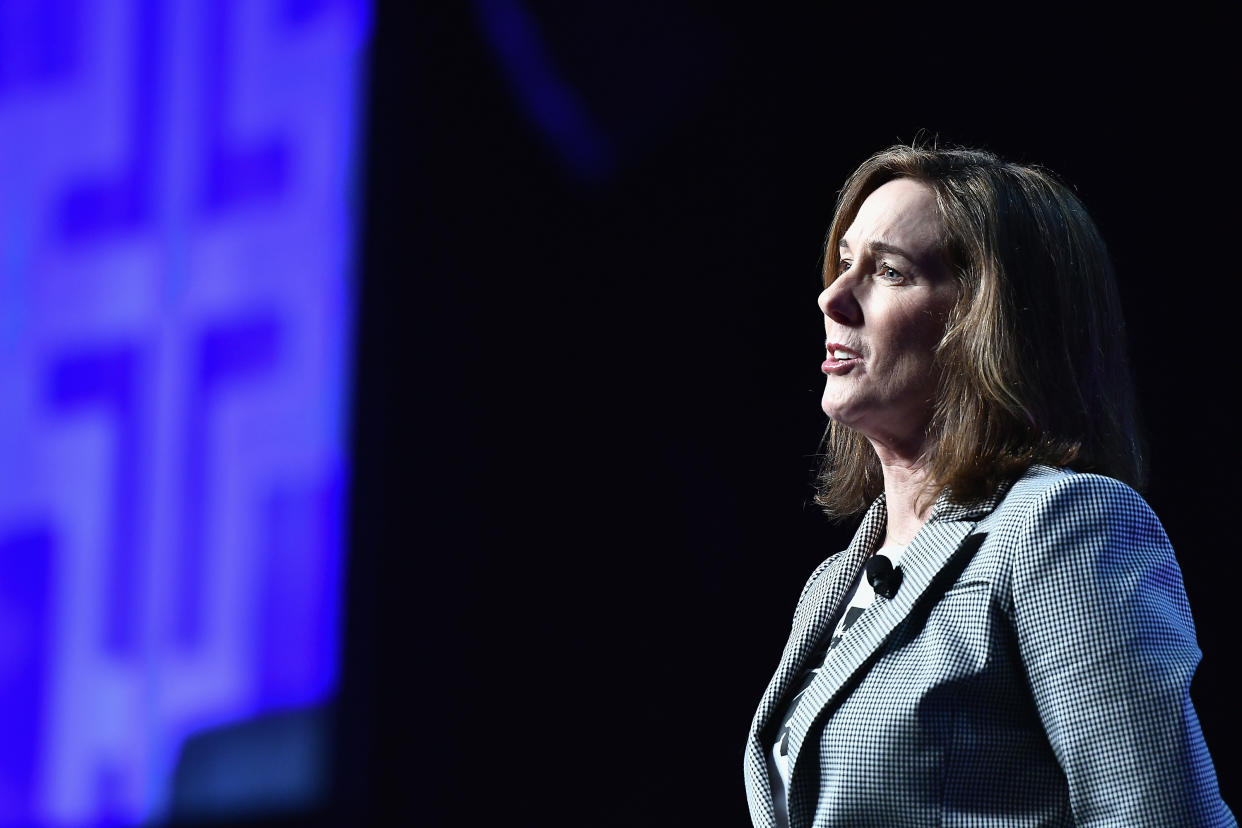How Kathleen Kennedy Wants to Stop Harassment

Lucasfilm president Kathleen Kennedy has been nominated for eight Academy Awards. She has produced over 60 films, including Jurassic Park, The Sixth Sense, Rogue One, and The Girl on the Train. And now, in the wake of several allegations of sexual harassment against producer Harvey Weinstein, she's focusing on building something different in Hollywood.
At ELLE's Women in Hollywood event on Monday night, Kennedy called for the creation of a film-industry commission designed to develop "new, industry-wide protections against sexual harassment and abuse."
Read her speech below:
I have to say that it’s a real honor to be here tonight with such an extraordinary group of women. But I did want to take a moment to get a bit serious because I think we are in the midst of some things that this is the perfect platform to be able to talk about it.
Obviously this is a night honoring women in film, and a night that has increasingly gained significance with each passing day. Along with the terrible and terrifying stories about sexual harassment and assault in the film industry that have dominated the news this past week, a demand is growing for action to prevent further civil and human rights abuses in the future.
Increased awareness of the belittlement, objectification, and predation long endured by women who work in film will certainly be one result of the exposure of what Harvey Weinstein did and was permitted to do. Women who were subject to similar criminal treatment in the future will certainly look to the brave women who have come forward to tell what was done to them as these shocking and also horribly familiar events have been brought to light.
The light of public scrutiny will have been strengthened, and we all hope the ability of corporations, boards of directors, and colleagues to cover up and countenance sexual predators will be severely curtailed. Predators must come to feel that they can’t count on power or wealth or fame to shield them from the consequences of their actions. But sexual harassment of women and men, predation, rape, and the misogyny that is the context for this inhumanity will continue unless there is decisive, industry-wide institutional response that legislates change rather than hopes for it to happen.
For the past few days, I’ve been in discussions with friends and colleagues, and I want to use my few moments of speaking tonight to offer a proposal. The organizations that constitute the American film industry, the studios, the unions, the guilds, and the talent agencies should immediately convene a commission charged with the task of developing new, industry-wide protections against sexual harassment and abuse.
This commission should be composed of specialists in labor and management practices, lawyers and legal scholars, sociologists, psychologists, feminists, activists, and theorists, as well as people who work in film and television. The commission should be fully funded by our industry in order to address the task at hand in a thorough-going, comprehensive fashion. The goal of this commission would be to transform our industry in regards to sexual harassment and abuse in the workplace. We must make the film industry an exemplar in this regard, a model for self-regulation that other businesses can emulate.
Because of course, this kind of abuse is epidemic. In every sector of industry and throughout our society, and we have to act to change that. We should have acted long ago. We must act now. I believe that with determination, hard work, a willingness to act, and a recognition of the urgency of immediate action, it is absolutely possible to protect people from sexual terrorism in their places of employment.
It seems to me that the solution would include zero-tolerance policies for abusive behavior and a secure, reliable, unimpeachable system in which victims of abuse can report what’s happened to them with a confident expectation that action will be taken without placing their employment, reputations, and careers at risk.
The next goal would be to find a path toward universal compliance with these new standards and practices. It’s often the case that real-world application of good ideas is more difficult than arriving at ideas themselves, and of course any new system will have flaws. But a new system can be 80 percent right and can change the world for the better. I’ve asked the board of governors of the Academy of Motion Picture Arts and Sciences, of which I’m a governor, to take the first steps toward creating this commission.
We have to act. I am proud to have worked in film my entire adult life and I reject the idea that misogyny is the true heart of this industry. Misogyny is depriving human beings of their humanity and that’s fundamentally antithetical to the empathetic examination of human experience that is, or at least ought to be, the core of what film at its best can be. People in our industry know that we have our own complicity, hypocrisy, and avoidance of this issue to examine and to answer for, but we cannot let that necessary work prevent us from immediately doing what needs to be done to build a better and safer industry. The time to begin that work is now.
You Might Also Like
